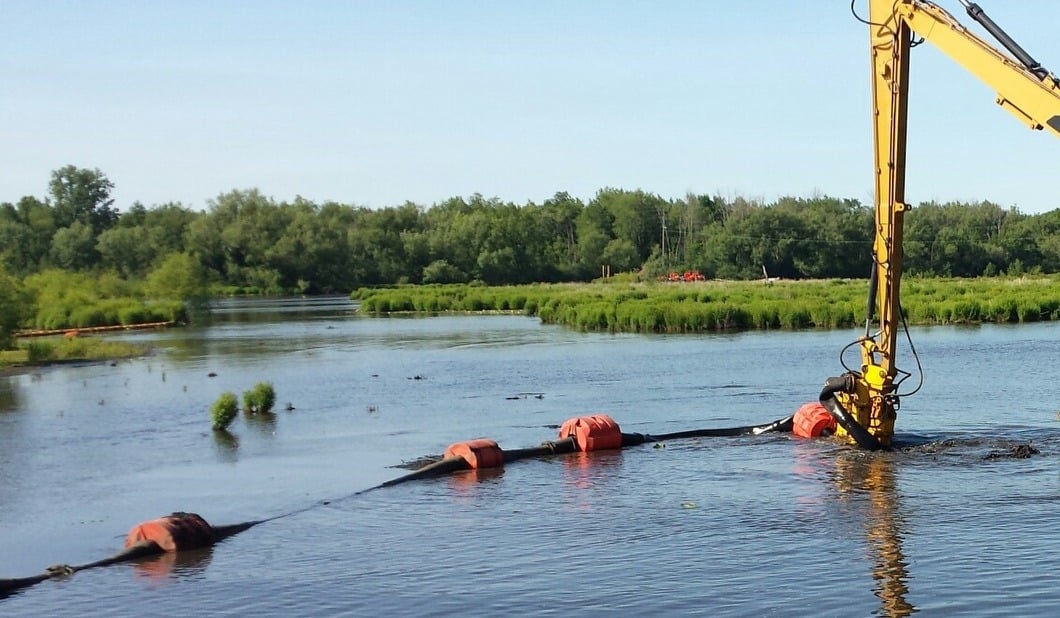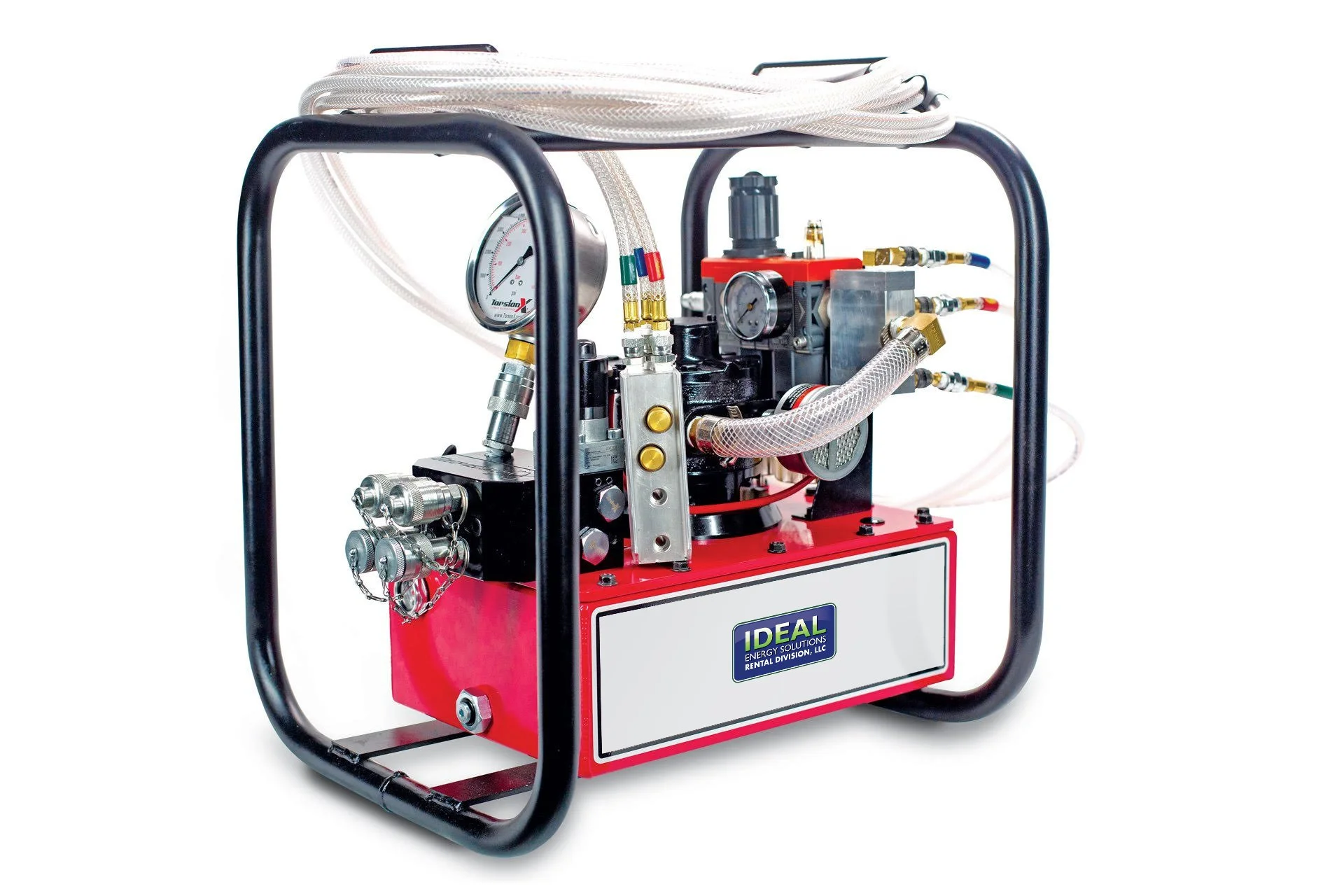Superior Oilfield pipeline equipment rentals: examples from the field
A Comprehensive Guide to the Various Sorts Of Oil Field Equipment and Pipeline Equipment Available
The oil and gas industry counts greatly on specific tools for reliable removal and transport. Numerous types of equipment, from piercing rigs to tank, play crucial roles in this complicated procedure. Each tool offers distinct functions that contribute to overall functional success. Recognizing these components is essential for any person entailed in the market. As the sector advances, so also do the modern technologies that sustain it. What innovations are on the perspective?

Drilling Rigs: The Foundation of Oil Expedition
Drilling rigs function as the necessary equipment in the domain name of oil exploration, allowing firms to access hydrocarbon books hidden deep below the Earth's surface area. These rigs can be found in various kinds, including land rigs, offshore rigs, and mobile systems, each made to run in specific settings. Geared up with advanced innovation, drilling rigs can penetrate geological developments with accuracy, making sure effective source removal. The structural integrity and operational capacities of these rigs are crucial, as they need to hold up against severe problems and significant stress. The selection of a drilling rig influences the total project cost and timeline, making it a vital factor to consider for oil business looking for to enhance their exploration efforts and make the most of performance in their procedures.
Pumps: Necessary for Fluid Activity
In the oil extraction procedure, the role of pumps is substantial, helping with the motion of liquids throughout various stages of production. Pumps are necessary for delivering unrefined oil, water, and other liquids from underground reservoirs to the surface area and after that through pipes to refineries. They can be found in numerous kinds, consisting of centrifugal, positive variation, and submersible pumps, each offering certain purposes based upon the liquid characteristics and operational demands. Centrifugal pumps are generally made use of for their performance in high-flow applications, while positive displacement pumps stand out in handling thick fluids. The choice of pump effects general effectiveness, operational safety and security, and maintenance costs. Correct selection and upkeep of pumps are essential for maximizing manufacturing and reducing downtime in oil field procedures.
Shutoffs: Managing Circulation and Pressure

Valves play a vital function in handling the circulation and stress of fluids within oil fields and pipelines. Numerous types of valves offer distinct applications, each made to fulfill specific features essential for efficient procedure - Superior Oilfield Rentals. Recognizing the attributes and usages of these valves is crucial for optimizing system performance and security
Kinds of Valves
Vital elements in oil field operations, valves play an important duty in managing the flow and stress of liquids within pipelines and equipment. Different kinds of valves are made use of to satisfy the varied demands of oil and gas production. Typical types include gate shutoffs, which offer a straight-line flow and minimal pressure drop; world valves, understood for their throttling capacities; and ball valves, recognized for their fast on/off control. Furthermore, check valves prevent heartburn, while butterfly valves offer a lightweight service for controling circulation. Each valve kind is developed with certain materials and arrangements to withstand the harsh problems usually found in oil fields, making sure integrity and performance in procedures. Recognizing these types is essential for effective system monitoring.
Valve Applications and Features
While different types of valves offer distinct objectives, their primary applications focus on controlling circulation and stress within oil and gas systems. Valves such as entrance, globe, and ball valves control liquid movement, making sure peak performance and security. Entrance shutoffs are commonly utilized for on/off control, giving marginal flow resistance. Globe shutoffs, on the other hand, offer exact circulation policy, making them suitable for strangling applications. Ball shutoffs are preferred for their quick operation and limited sealing capabilities. Furthermore, stress safety valve are important for protecting against system overpressure, safeguarding tools integrity. In general, the appropriate option and application of valves enhance operational effectiveness, ensuring the trusted transportation of oil and gas via pipelines and processing centers.
Compressors: Enhancing Gas Transportation
Compressors play an important function in the reliable transportation of gas, guaranteeing that it relocates efficiently via pipelines over long distances. These tools raise the stress of all-natural gas, enabling it to overcome rubbing and elevation modifications within the pipeline system. In addition, compressors assist in the harmonizing of supply and demand, suiting fluctuations in usage and manufacturing prices. Different kinds of compressors are utilized in the market, consisting of centrifugal, reciprocating, and rotating screw compressors, each offering distinct advantages based upon the operational needs. Routine upkeep of these compressors is necessary to optimize performance and decrease downtime, ultimately contributing to a trustworthy gas transport network. Their important function highlights the importance of compressors in the overall oil and gas framework.
Storage Tanks: Safe and Efficient Fluid Management
Effective transport of all-natural gas relies upon different sustaining systems, among which is the correct monitoring of tank. These storage tanks play a necessary duty in safely having fluids, making sure that functional performance is preserved while minimizing ecological threats. Constructed from durable materials, they are created to endure high stress and corrosive aspects. blocked pipes plumber Correctly sized and purposefully situated, storage space containers help with the smooth circulation of natural gas and various other fluids, stopping bottlenecks in supply chains. Normal maintenance and monitoring are important to discover leaks or architectural concerns, advertising security and compliance with regulatory criteria. Ultimately, the efficient monitoring of storage tanks is essential for the total stability and reliability of the oil and gas sector's liquid handling systems.
Pipeline Equipments: Facilities for Transport
Pipeline systems serve as the backbone of the oil and gas market, promoting the effective transportation of hydrocarbons over huge ranges. These systems are composed of various components, consisting of pipes, valves, pumps, and compressors, all thoroughly designed to ensure smooth circulation. The materials made use of in pipeline building and construction, frequently steel or high-density polyethylene, are chosen for sturdiness and resistance to rust. Pipeline networks can span across land and water, attaching manufacturing websites to refineries and circulation centers. In addition, advanced innovation makes it possible for real-time tracking of flow rates and pressure levels, boosting operational performance. The calculated positioning of these pipes lessens ecological impact while optimizing source access, consequently playing a necessary role in conference energy needs worldwide.
Security Equipment: Making Certain Worker and Environmental Management
The operation of pipeline systems, while essential for power transportation, additionally offers considerable security obstacles for workers and the setting. Safety devices plays a considerable role in reducing these risks. Personal protective tools (PPE) such as safety helmets, gloves, and non-slip footwear safeguards employees from physical risks. In addition, gas discovery systems keep an eye on for leakages, making certain that damaging substances do not pose a risk to personnel or the bordering ecological community. Emergency situation shutdown systems are critical for promptly stopping operations throughout a situation, avoiding possible calamities. Spill containment products, including absorbents and barriers, are basic for decreasing ecological effect. Overall, investing in all-inclusive security tools is crucial for maintaining operational integrity and safeguarding both workers and the setting in the oil and gas industry.

Regularly Asked Inquiries
How Do I Choose the Right Oil Field Equipment for My Job?
Picking the appropriate oil area devices involves reviewing task specs, budget restraints, and operational needs. Take into consideration elements such as tools dependability, compatibility with existing systems, and the vendor's credibility to ensure peak performance and safety and security.
What Are the Upkeep Demands for Oil Field Equipment?
Maintenance requirements for oil area equipment consist of regular assessments, lubrication, Visit This Link and prompt repairs. Operators should likewise follow manufacturer guidelines, screen performance metrics, and warranty compliance with safety guidelines to boost long life and performance.

How Can I Guarantee Compliance With Environmental Regulations?
To assure compliance with environmental regulations, companies should carry out regular audits, implement best techniques, purchase training, keep appropriate documentation, and stay updated on regulations (Superior Rentals go to the website fusion machines). Partnership with environmental companies can also improve adherence to regulations
What Is the Typical Life Expectancy of Pipeline Equipment?
The average lifespan of pipeline devices commonly ranges from 20 to 50 years, depending on factors such as material top quality, ecological conditions, and upkeep methods. Regular assessments can substantially affect durability and operational performance.
Exactly how Do I Safely Carry Oil Field Equipment to Remote Locations?
Transferring oil area equipment to remote areas requires cautious preparation, including course evaluation, securing authorizations, using suitable vehicles, and making certain safety procedures are followed. Proper training and interaction among crews are essential for successful transportation.